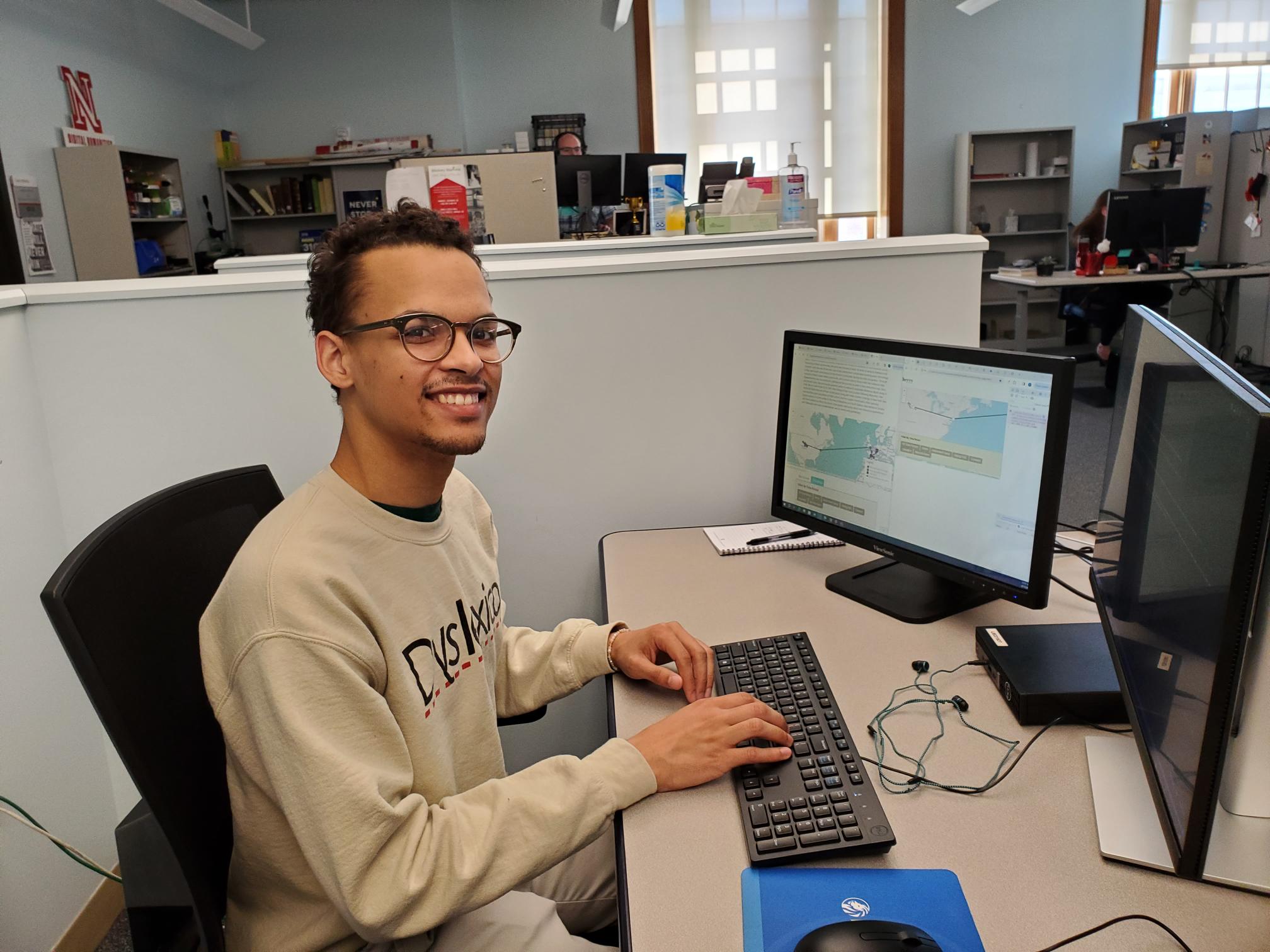
The “intersectionality of computer science and English” was what motivated Tristan Curd, recent graduate (May 2024) with a computer science degree and a minor in digital humanities, to work for the Center for Digital Research in the Humanities (CDRH) and expand both his technical skills and his understanding of his connection to history.
Curd applied his technical programming knowledge working on two projects, Nebraska Stories of Humanity and The Orphan Trains of Nebraska.
“Both projects gave me the sense of connection to history in a more personal way and empathy to the orphan that ended up living on a farm in Nebraska or to the survivor of the Holocaust,” said Curd of the experience.
Curd’s job was the technical infrastructure of the searchable databases for the Orphan Train project.
“I had not had the experience before of manipulating data and creating a searchable database from a table of data that included names, birth dates, Nebraska train destinations where the orphans were dropped off, and more,” explained Curd.
Curd worked with graduate student Brianna DeValk, who assembled the data in a table and added more research based on materials given to the CDRH.
The Orphan Train “refers broadly to the placing-out system initiated by the Children’s Aid Society in 1853 that sought to give New York City’s homeless or orphaned children new homes.” Orphan trains started in the mid 1850s and were active until the early 1920s. It is estimated that more than 200,000 orphans were transplanted from the east coast to the Midwest. The site includes a list of more than 2,000 entries of children that arrived in Nebraska, the organization that sent them west, family that took in the child, the location of the family, and more.
“This project provided me with another perspective on history and the context of the stories that needed to be told,” Curd said.
During his time as a student in the CDRH, Curd worked on a second project as well, a map of Holocaust survivors in Nebraska for the Nebraska Stories of Humanity website.
Reading the letters and stories of the survivors “brought history closer and in a more personal way” to Curd. For that alone, his time working on these projects in the CDRH has been valuable. Curd also credits the scholars, staff, and students he has gotten to know and work with.
“I’m so grateful for my time in the CDRH. Everyone was so generous in sharing their expertise, and I learned a lot just by being present,” Curd said, “and I’m so proud to have been part of Digital Humanities and its long history at Nebraska.”
Since graduation, Curd has been working full-time at a start-up called Dyslexico, which was cofounded by Curd, Grace Clausen and Bridget Peterkin, all UNL grads. Dyslexico, an artificial intelligence program, offers “spelling and grammar correction tools specifically oriented toward the dyslexic experience.” Curd will use his computer science and English background to help it grow. His friends are in California, but he’ll return to his hometown of Omaha for now. Nebraska Public Media recently covered their achievement in developing this software.